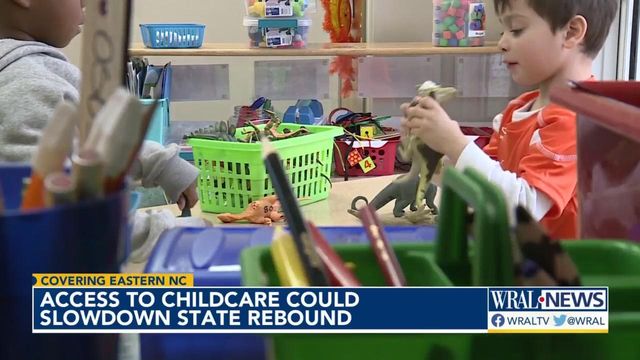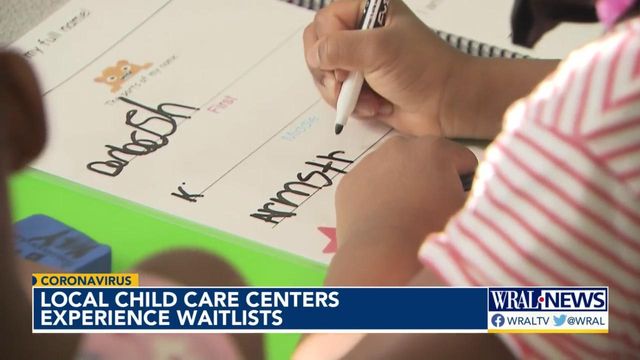Lack of child care access could block NC's economic recovery, advocates say
A lack of child care access could slow down the entire state's rebound from the COVID-19 pandemic, advocates say.
People pushing for child care availability in Greenville say there’s a barrier between parents and the child care services they need. High costs and long waitlists are forcing parents to choose between their jobs and their families.
It really is not just an issue that impacts parents and families, it really impacts all of us,” said Amanda Parmelee, community outreach director for Martin-Pitt Partnership for Children.
Although most pandemic restrictions for businesses have been thrown out, community leaders in Pitt County said lack of child care could keep the state’s economy from bouncing back quickly.
“There just aren’t enough openings for the kids who need after-school care,” Parmelee said.
Many facilities shut down temporarily during the pandemic, and the ones that closed for good have left parents in the lurch, searching for a new daycare that would have room for their children.
“They have a 2 to 3 month long waiting list just for kids who are trying to find care,” Parmelee said.
Dawn Cox has seen the crush of demand firsthand — both of her daycare centers have been completely full since last March.
“We hate to see parents come in, moms come in and they’re stressed out, crying, they don’t know what they’re going to do,” Cox said. “They need a child at daycare but they need to work, but then they can’t afford daycare because daycare is expensive.”
Before the pandemic, a year of care for one child already cost close to 20% of Pitt County’s average family income.
The Martin-Pitt Partnership for Children told WRAL News many families who couldn’t afford or secure child care wouldn’t be able to go back to work.
“It starts that, just, vicious cycle of needing a job to be able to afford child care, but you need child care to get that job,” Parmelee said.
Proponents said if help didn’t arrive soon, North Carolina could learn the hard way that the impact of child care goes way beyond the classroom.
“It’s definitely something I anticipate will be statewide,” Parmelee said. “It’s just this whole correlation between the success of children and families, and the success of our community.”
The Partnership for Children said businesses could make things easier for families by being flexible and letting them work alternative hours or even work virtually if they could.











